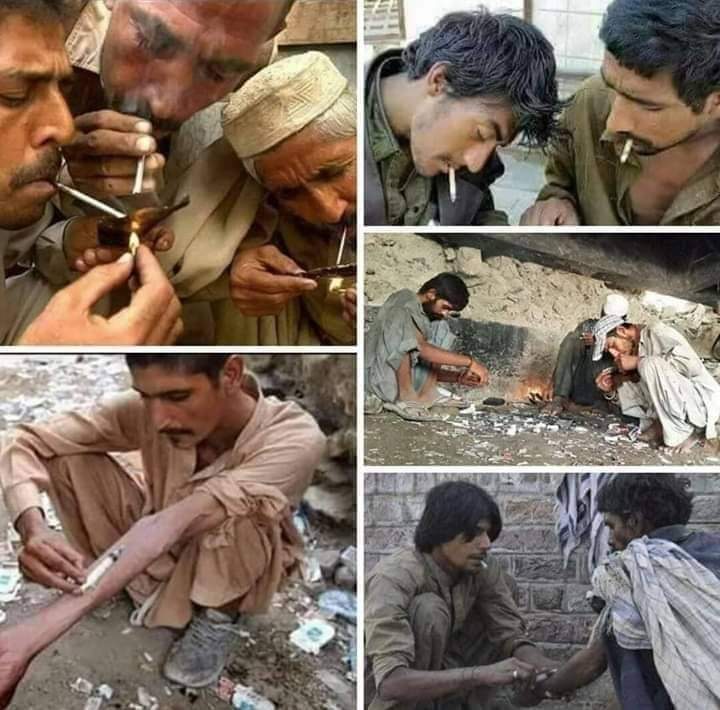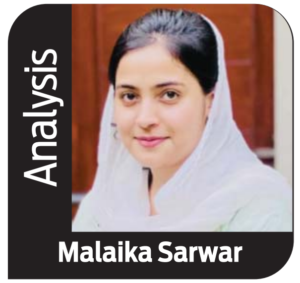
 Drug addiction is a pervasive problem that poses a significant obstacle to the progress of Pakistan. This issue impacts individuals, families, communities, and the nation, hindering social development, economic growth, and overall stability.
Drug addiction is a pervasive problem that poses a significant obstacle to the progress of Pakistan. This issue impacts individuals, families, communities, and the nation, hindering social development, economic growth, and overall stability.
The detrimental effects of drug addiction can be observed in various aspects of society, ranging from health burdens and reduced productivity to increased crime rates and strained social fabric.
One of the most pressing concerns associated with drug addiction is its impact on public health.
Substance abuse leads to a wide range of physical and mental health problems, placing a tremendous burden on healthcare resources. The costs associated with treating drug-related diseases and injuries divert funds that could otherwise be allocated to important developmental initiatives, such as improving infrastructure, education, and healthcare systems. Additionally, drug addiction contributes to the spread of infectious diseases, including HIV/AIDS and hepatitis, through unsafe injection practices and risky behaviors.
Furthermore, drug addiction diminishes productivity and human capital. Substance abuse impairs cognitive abilities, disrupts work performance, and undermines the overall well-being of individuals. Consequently, addicted individuals struggle to contribute effectively to the workforce, leading to a loss of human potential and hindering economic growth. As the productivity of the population decreases, so does the ability of the nation to prosper and progress.
The economic implications of drug addiction extend beyond reduced productivity. Individuals trapped in addiction often spend their limited financial resources on drugs rather than meeting their basic needs. This perpetuates a cycle of poverty, as addicts struggle to provide for themselves and their families. Desperation can lead to engaging in criminal activities, such as drug trafficking, to sustain their habit or generate income. The rise in crime rates destabilizes communities, erodes trust, and poses a serious threat to social cohesion.
In addition to the economic consequences, drug addiction poses a severe challenge to education and youth development. Young people who are addicted to drugs frequently face difficulties in completing their education, limiting their potential to contribute effectively to society. The loss of talented and capable youth hinders the overall progress of the country and perpetuates a cycle of poverty and underdevelopment. Moreover, drug addiction places immense strain on the social fabric and family structures. Substance abuse disrupts relationships, tears apart families, and weakens social cohesion. Addicted individuals often experience strained relationships, domestic violence, and neglect of children, leading to long-lasting social and psychological consequences.
The disintegration of social bonds further impedes progress and development, as a cohesive society is essential for collective growth.
According to the United Nations Office on Drugs and Crime, Pakistan has 6.7 million drug users.
Almost 2 million of these are addicts, amongst the highest numbers for any country in the world.
According to a research article published in 2020 in Elsevier, the first step towards drug addiction starts with smoking. Researchers also state that drug usage in movies also influences the behavior of drug consumption among university students. Abuse of cannabis and heroin, both of which are extremely cheap and easy to get, are rife in the country. Most of the drugs come from Afghanistan, the country that is responsible for at least 75% of the world's heroin. The UNODC calculates that more than 800,000 Pakistanis between the ages of 15 and 64 use heroin regularly.
It is also estimated that up to 44 tons of processed heroin are consumed annually in Pakistan. A further 110 tons of heroin and morphine from neighboring Afghanistan are trafficked through Pakistan to international markets. Furthermore, Pakistan's illegal drug trade is believed to generate up to $2 billion (about $6 per person in the US) a year.
The number of cannabis users is particularly high in the Khyber Pakhtunkhwa province of Pakistan, which neighbors Afghanistan, where close to 11 percent of the population is hooked on drugs (mainly Cannabis). In 2013, the number of drug users in Balochistan was 280,000. In Pakistan, the total number of drug addicts as per a UN report is 7.6 million, 78% of whom are male, while the remaining 22% are female. The number of these addicts is increasing at the rate of 40,000 per year, making Pakistan one of the most drug affected countries in the world. The The number of injection drug users in Punjab has also increased sharply in recent years. In 2007, Pakistan had an estimated 90,000 injecting drug users, but the number had risen to around 500,000 by 2014. This increase has also been accompanied by an increase in HIV positivity.
According to research, in 2005, about 11 percent of Pakistani drug users were HIV positive. That number had risen to 40 percent in 2011.
Despite the alarming increase, governmental response has been minimal. Few programs are active in the country to help drug addicts, while smuggling and availability of drugs in the the country has gone almost unchecked. Though the Anti-Narcotics Force (government agency responsible for tackling drug smuggling and use within Pakistan) plays a significant role, addressing the issue of drug addiction requires a comprehensive and multi-faceted approach.
Prevention and awareness campaigns must be implemented to educate the public, particularly the youth; about the dangers of drug abuse and promote healthy lifestyles. Access to affordable and quality addiction treatment services, including counseling, detoxification, and rehabilitation programs, should be expanded to ensure that those struggling with addiction can receive the necessary support. By combining these efforts, Pakistan can create a supportive environment that discourages drug use, helps individuals recover, and promotes a healthier and more prosperous society.
The writer is a student in the school of Politics and International Relations at Quaid-I-Azam
University, Islamabad. She can be reached at [email protected]





